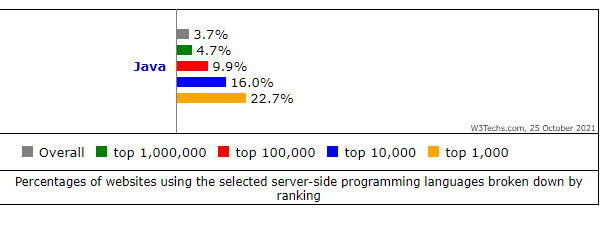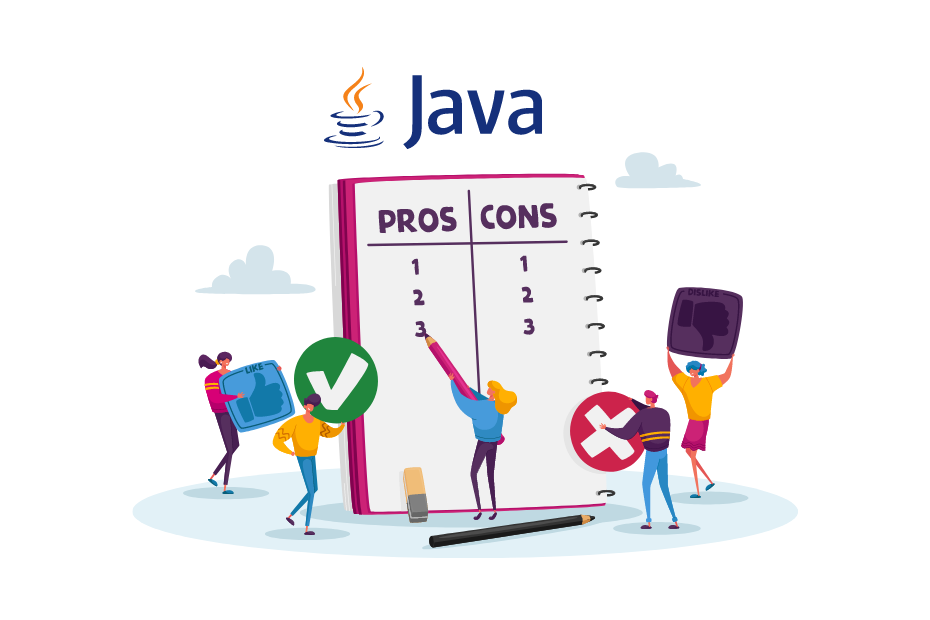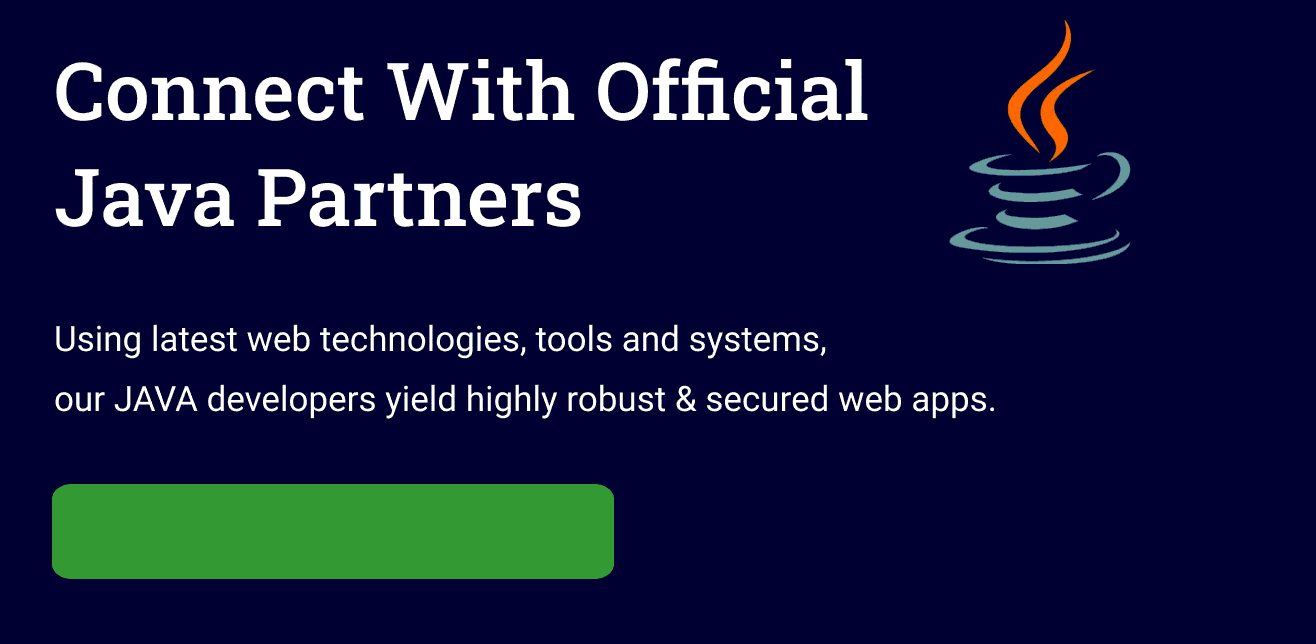Java, an object-oriented programming language, has been widely used in web development since the 90s. It was originally developed by Sun Microsystems, which became Oracle Corporation in 2010, and was first introduced in 1995 as an alternative to JavaScript. It’s now one of the most popular programming languages out there, with over 9 million Java developers worldwide, according to 2017 Stack Overflow survey results. Here are the reasons why Java programming language is important to software development and also find its applications here.
Some Latest Stats on Java Programming Language:
-> As per w3techs.com, Java is used by 3.7% of all the overall websites and 4.7% of all the websites that rank in the top 1,000,000.

Img src: w3techs
-> The current market position of the Java programming language is shown below:

-> As per the Tiobe Index report, Java ranked at 2nd position, which later on was overtaken by Python.
-> As per Statista, nearly 56% of respondents say that they use Java, Python, SQL, HTML/CSS as the top 5 programming languages around the globe.
How will Java software development be good for businesses in 2021–22?
Java is a powerful and flexible programming language that emphasizes the importance of code readability. Java is currently one of the most popular languages in businesses today, has been open-sourced, and runs on almost any hardware and OS. With custom Java development, programs can run as either GUI applications or as console applications. Compare this to other languages such as Python, which only allows console applications to be generated. Java also runs on Microsoft Windows, Mac OS X, Android OS (using an Android virtual machine for now), Blackberry OS 10 environments, Linux operating systems using the OpenJDK JVM (out for Fedora 9 and Ubuntu 9), and many more platforms that use its interpreter engine like Palm WebOS (beta version), Google Chrome browser plug.
Businesses that want to cut down on time and cost need a universal software package that eliminates a lot of coding errors before a project can be released to customers. Java web development removes any margin for error from the equation, making it easier for businesses to create apps without concern about bugs or wasted money.
Why is Java used for software development?
Java has been one of the most demanding programming languages over the past few decades, and there are three main reasons why this technology has remained so prevalent in the world of software development for so long. Let’s take a look at those now to see why Java app development will remain an important part of any software developer’s toolkit in the years to come.
1) Java Web Application Development
Java web development was instrumental in helping create a worldwide network of computers that all speak a common language. Today, it remains one of the most popular programming languages for creating server-side applications. Of course, you don’t have to program in Java specifically — there are a variety of programming languages that can be used with different frameworks and technologies to create web apps. And, while there may be many reasons you should choose Java for your next app, here are just three: Flexibility, power, and security.
2) Java App Development
Java is a true object-oriented programming language. While other languages have objects as a secondary feature, Java was built from day one as an object-oriented language. With Java, any code you write will be compiled into bytecode and executed by a virtual machine (JVM) instead of being directly interpreted at runtime.
The JVM executes any code written in Java or another JVM-compliant language such as Scala or Clojure. The fact that you can use languages like Scala and Clojure makes Java app development great for advanced development projects where performance optimization takes center stage. In addition, Scala and Clojure both compile down to run on top of a JVM — unlike, say, Python — which means that switching between multiple languages isn’t hard at all if needed.
3) Java Mobile App Development
Java is an open-source, statically typed programming language that was developed by Sun Microsystems in 1995. Today, it powers a broad range of applications and websites around the world, from popular social networks like Twitter and LinkedIn to enterprise software that helps businesses manage their operations more efficiently.
Pros & Cons
The pros of Java:
– Java has been around since 1995, so it’s been tested thoroughly over the decades with billions of lines of code written in it. This means that many companies have used this technology for their development needs, and they can prove its reliability to you;
– The framework is extremely object-oriented — this means that each component is encapsulated in its own class and has to communicate with the other components only through their public interface;
– You can start learning Java easily since it’s clear what you should do when programming — there are no hidden traps waiting for you;
– The code written by developers using java is compiled into bytecode that runs on any Java Virtual Machine (JVM) and can be executed across different platforms.
The cons of Java:
– The language is very verbose; every line of code you write has to contain a lot of information, which makes it less readable than other languages like Python or JavaScript;
– It’s old and not as dynamic; it’s hard to learn, develop and debug. It has an extensive syntax that takes developers a long time to learn how to use it efficiently;
– The java code is compiled into bytecode before running on the JVM — this means you need the full Java SDK installed in your machine for any Java-related task to run properly.
Also Read: 7 Java Web Development Technologies You Must Know In 2021–22
Why is Java a preferred choice by software developers?
Produce highly scalable apps:
Java has grown to be one of the most popular programming languages for creating Web apps, Android software development tools such as IntelliJ IDEA and Eclipse IDE’s. It also powers data science with machine learning increasing in popularity among companies that need it because they want programs or devices which interact better than humans can do themselves without technical assistance.
Moreover, Java is a popular programming language for creating highly scalable solutions because it includes many high-level concurrency tools and packages. Java also has cross-platform compatibility, so you can use this in your website or app no matter what device it runs on.
The JAVA programming language was created specifically so programmers could work more effectively when working remotely from one another, as well as taking advantage of networked environments where each computer has its own server but all share resources.
Consists of a variety of APIs:
Java has several different types of APIs. Each one provides developers with access to various methods and tools they can use in their applications, so you don’t need a bunch of separate libraries if we’re talking about networking or processing XML data sets as well as connecting databases all at once (or even outputting messages).
There are also plenty more available like Google Guava, which is great because it means that our app will work better than ever before now thanks to Open-source software such as Apache Xerxes; Gson — another library made by google., etc.
Furthermore, releasing APIs to the public leads many companies to release private data in order for programmers to use it. For example, Twitter provides developers access through its API (application programming interface).
Provides a robust community:
For the past decade, Java has been a mainstay in computing. Its dynamic and vibrant community support is what sets it apart from other languages like C or Pascal, which have seen much less adoption among developers over time because they don’t offer as many features for beginners to learn on the first attempt.
On Stack Overflow, even when Java developers get trapped within their programming ruts, they can find answers almost anywhere, which makes this language feel limitless rather than limiting like other languages might be perceived.
Has a great documentation:
Whether you’re building an app that will revolutionize the way we work or just want to get into coding and learn something new, Java documentation is there with all of your requirements. From tutorials on how-to’s like creating a project using NetBeans IDE, API docs for interacting securely online through browser plugins such as OktaAuth (OAuth 2), developer guides that help organize lessons learned throughout the development process — everything can be found here.
Accompanied by powerful development tools:
Java offers a wide range of tools, both automated and manual. NetBeans is one popular IDE that can be used for developing Java apps with Maven or ANT scripts to manage builds on the fly, as well as providing various debugging capabilities such as VisualVM, which allows you to monitor your Heap utilization without slowing down program execution time.
Java is a versatile and powerful programming language with libraries for practically anything. It has superior GUI (Graphical User Interface) systems in comparison to AWT or Swing, which can be more basic when using JDK 8, but that doesn’t mean you should give up your old knowledge! Java also allows connecting databases through its integrated database connectivity API called JAVA DB; this functionality makes it possible to store information from different sources into one central location — not just on local drives but potentially worldwide via cloud storage providers such as Amazon Web Services.
Applications of java
Every big organization is using Java for building valuable applications. In fact, there are approx. 64,000 companies using JAVA in the U.S. alone. Here, we will find its major applications:
-> Enterprise Apps
Java is the most popular enterprise application development language because it has robust features that match current industry needs. Most companies in today’s era use Java applications, and they do so for their security plus power as well scalability with extraordinary performance rates.
Examples:
- ERP solutions
- CRM solutions
- Business Apps
- Government Apps
- Charity Apps
-> Web-based Java Apps
A web application is a client-server program that uses the Internet to interact with users. Java supports developing these types of applications through servlets, struts, and traditional programming languages like C# or VB .NET, which all work well in combination on your website’s server-side code.
Examples:
- Online Forms
- Google Slides
- Gmail
- Google Sheets
- Shopping carts
-> Cloud-based Java Apps
Despite being the language that provides a structure for web applications, Java has recently been breaking into cloud-based development because of its distributed nature. In this context, it offers features that can be used from SaaS (Software as service), IaaS(Infrastructure as a Service), and PaaS Platforms such as Amazon Web Services’ Lambda services or OpenPop by HPE .
Examples: (Tools)
- Google app engine
- Jelastic
- IBM smartcloud
- AWS SDK
- Cloudfoundry
-> Java Mobile Apps
In today’s era, the majority of phones and smart devices have Android OS. Without java, it is not possible to create an app for these platforms. As a result, most apps are developed in Java Micro Edition (J2ME). Fortunately, there’s also Kotlin which can help us create apps compatible with both Android Studio as well as Google Play Services, so they’re far easier (and less expensive) than if we did everything ourselves from scratch every time our mood changed.
Examples:
- Netflix
- Google Earth
- Uber
- QRReader
- Tinder
-> GUI Java Apps
With the help of APIs like AWT and Swing, you can develop desktop applications in Java. The Abstract Windowing Toolkit (AWT) is an interface designed for developing window-based programs with ease that will not require any specialized knowledge about programming languages or design principles.
Examples:
- Media Player
- ThinkFree
- Acrobat Reader
- Antiviruses
Also Read: Bespoke Java Applications Types That You Shouldn’t Miss Out In 2021-22
Conclusion:
So, we have become aware of the various aspects of why Java is good for software development and how Java software development has become the first choice of every next software developer. Hence, Java is the best choice for those who want to build a business that can thrive. If you think Java might be right for your company, make sure and find an expert app developer with experience in developing bespoke software like ours- we @ValueCoders ( a leading Java development company in India) will help; take care of all aspects from beginning until the end!
If you want to tell us more about Java applications, feel free to contact us @ValueCoders or comment in the box.
















